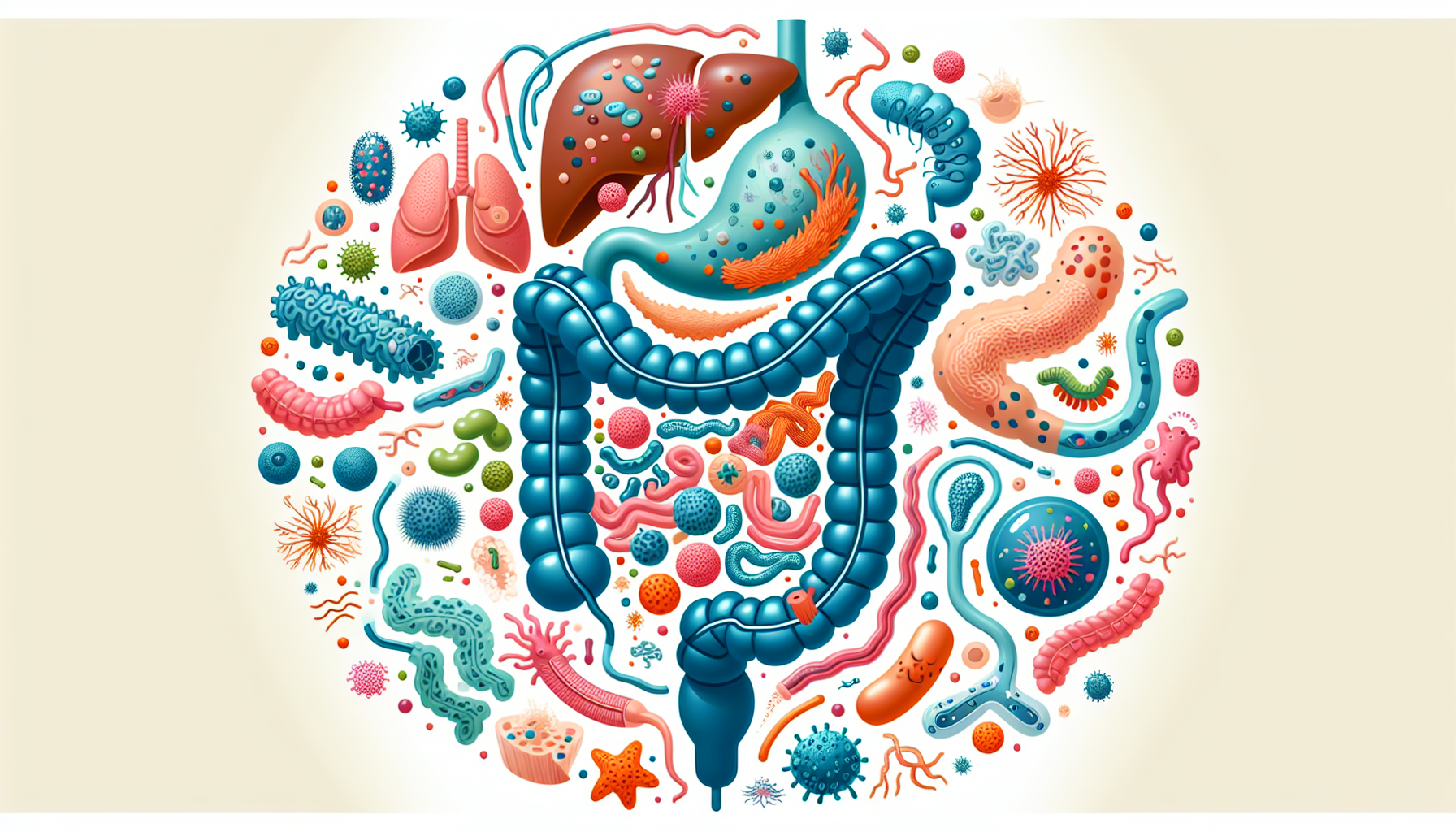The human microbiome, an intricate ecosystem of microbes residing in our bodies, plays a crucial role in maintaining health and preventing disease. Recent research has highlighted the importance of gut microbiota in particular, as these microscopic inhabitants of our intestines are involved in numerous physiological processes, including the prevention of digestive cancers. This article delves into the complex relationship between the microbiome and digestive health, exploring how nurturing a healthy gut environment can contribute to cancer prevention.
Understanding the Gut Microbiome
The gut microbiome is comprised of trillions of bacteria, viruses, fungi, and other microorganisms that inhabit the gastrointestinal tract. These microbes are not merely passive residents; they engage in a symbiotic relationship with the host, contributing to metabolic functions, immune system modulation, and the maintenance of gut integrity. Disruptions in the balance of these microbial communities, known as dysbiosis, have been associated with various health issues, including inflammatory bowel diseases and cancers of the digestive system.
Microbiome’s Influence on Digestive Cancers
Digestive cancers, such as those affecting the colon, stomach, and pancreas, are among the leading causes of cancer-related deaths worldwide. The gut microbiome’s role in these malignancies is multifaceted, influencing processes like inflammation, DNA repair, and the metabolism of dietary components. Certain bacterial species can produce genotoxic substances that damage DNA, while others may modulate immune responses to target cancer cells effectively.
The interaction between diet, the microbiome, and cancer risk is particularly compelling. Diets rich in fiber, for example, have been shown to promote a healthier gut microbiome, which in turn can reduce cancer risk. Conversely, diets high in processed meats and refined sugars may encourage the growth of harmful bacteria that contribute to carcinogenesis.
Strategies for a Cancer-Preventive Microbiome
Cultivating a microbiome that can thwart the development of digestive cancers involves several strategies, including dietary modifications, probiotic and prebiotic interventions, and lifestyle changes.
Dietary Interventions
A diet rich in whole foods, such as fruits, vegetables, whole grains, and lean proteins, is associated with a more diverse and resilient microbiome. Prebiotic foods, which contain compounds that feed beneficial gut bacteria, are particularly important. These include foods like garlic, onions, asparagus, and bananas. Meanwhile, probiotic foods like yogurt, kefir, and fermented vegetables introduce beneficial bacteria directly into the gut.
For a deeper look into the benefits of certain dietary choices on gut flora, consider reading Understanding the Benefits of Ketogenic Diet on Gut Flora and The Importance of Prebiotic Foods in Gut Health.
Lifestyle Modifications
Lifestyle factors such as exercise, stress management, and adequate sleep can also influence the microbiome. Regular physical activity has been linked to increased microbial diversity, while chronic stress may negatively affect microbial balance. Moreover, a healthy sleep pattern can support the circadian rhythms of gut microbes, aiding in their optimal function.
To learn more about how lifestyle factors affect the gut microbiome, Analyzing the Effects of Stress on Gut Microbiota provides insightful information.
Probiotics and Prebiotics
Supplementing with probiotics and prebiotics can help maintain a healthy gut microbiome. Probiotics are live beneficial bacteria, while prebiotics are the non-digestible fibers that feed them. Together, they can help restore and maintain a balanced microbial environment conducive to cancer prevention.
Discover recent developments in this field by exploring Advances in Probiotic Therapy for Digestive Disorders.
The Link Between Digestive and Overall Health
A healthy digestive system, supported by a balanced microbiome, is fundamental not only for cancer prevention but also for overall well-being. The gut is often referred to as the "second brain" due to its significant influence on mental health, immune function, and chronic disease management.
For a comprehensive understanding of how a well-maintained microbiome supports broader health, reading about The Role of Gastrointestinal Health in Chronic Disease Prevention can be enlightening.
External Resources for Further Reading
To extend your knowledge on the relationship between the microbiome and cancer prevention, here are some niche resources that provide valuable insights:
- The American Microbiome Institute offers detailed information on microbiome research and its implications for human health, including cancer prevention.
- The International Scientific Association for Probiotics and Prebiotics (ISAPP) provides evidence-based information on the use of probiotics and prebiotics for various health outcomes.
- Gut Microbiota for Health, a platform by the European Society for Neurogastroenterology & Motility (ESNM), discusses the latest findings on gut microbiota’s impact on health.
Conclusion
The gut microbiome’s role in preventing digestive cancers is a testament to the intricate connection between our bodies and the microscopic world within us. By adopting a holistic approach that includes a balanced diet, regular exercise, stress management, and possibly supplementation, individuals can support their microbiome in its vital role in maintaining digestive health and preventing diseases like cancer.
As we continue to uncover the complexities of the microbiome, it becomes increasingly clear that fostering a healthy gut is integral to our overall health strategy. By integrating the insights from ongoing research into our daily lives, we can harness the power of our microbiome to not only prevent cancer but also enhance our quality of life.



